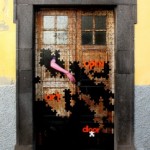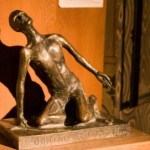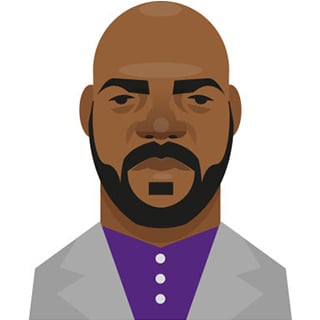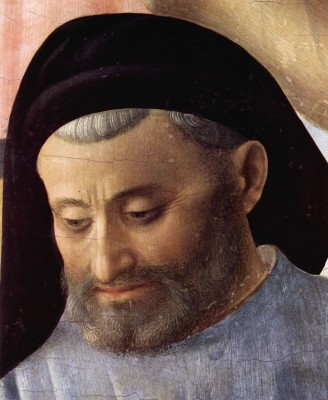 The wind blows where it chooses, and you hear the sound of it, but you do not know where it comes from or where it goes. –Jesus, speaking to Nicodemus.
The wind blows where it chooses, and you hear the sound of it, but you do not know where it comes from or where it goes. –Jesus, speaking to Nicodemus.
Nicodemus, called a leader among the Jews, came to listen to Jesus at night. It’s an old assumption that he comes under cover of darkness in order not to be recognized – an educated scholar of the Torah and the prophets, going to hear a street preacher – what would people say? But I think this is false, for he was recognized, and remembered. Here is what I see happening there:
In the summer of 1989 I spent six weeks in the mountains of Guatemala, in villages where most folks worked in large international agri-farms. They worked twelve hour shifts, leaving before dawn and returning after sunset to the village. So the market had shifted from day to night. Women holding kerosene lamps or thick pillar candles walked past the tables, bending to cast the light upon fruit, sacks of rice, fish, while the vendors sat by small fires in the street. We know from the earlier gospels that Samaritans were neither wealthy nor powerful, and therefore they may have worked like this for their wages. Jesus would have spoken to them at night because that was when they were free to gather.
We also know John’s gospel emerged from a Samaritan community, a group set apart by different beliefs and practices, a people who read the Torah but not the prophets, a people who did not practice the liturgies of the Jerusalem Temple, nor did they consider it important in their religious lives.
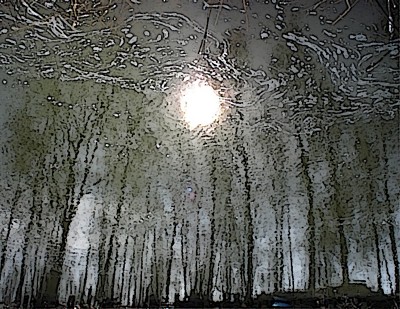 Nicodemus, a man of keen interest in religion, was eager to hear Jesus, whose reputation as a preacher who drew huge crowds would not have gone unreported. Jesus had not yet preached in Jerusalem. So when word came that Jesus was preaching among the neighboring Samaritans, Nicodemus chose to attend the meeting.
Nicodemus, a man of keen interest in religion, was eager to hear Jesus, whose reputation as a preacher who drew huge crowds would not have gone unreported. Jesus had not yet preached in Jerusalem. So when word came that Jesus was preaching among the neighboring Samaritans, Nicodemus chose to attend the meeting.
He was not hidden. Everything about him, his dress, the cut of his clothing, the way his beard was trimmed, his accent, revealed his office. And his willingness to engage Jesus with questions shows he was not afraid to be noted. He came with a marked interest in understanding Jesus. The Samaritans, who incorporated the legend of his visit into their gospel, found in this conversation Jesus’ resolution to the long friction over texts and traditions which separated Samaritans and Temple Jews.
Nicodemus addressed Jesus with respect for his signs, and Jesus responded with words drawn from these mysteries, about being born from the Spirit. Nicodemus asked how this can be. Not, I think, because Nicodemus, a highly educated man, didn’t get Jesus’ meaning. He was raising an argument that is fierce among us still. Are we not all products of the lives we have lived? Are we not shaped by our repeated experiences, are we not shaped by our educations and our works? Can all of this be swept aside by the blowing of the wind? Can we become un-formed, in order to be re-formed by the Spirit of God?
 Nicodemus’ question speaks for us all: Does it not matter that we are part of some tradition, Yankee New Englanders, Catholic Californians, prairie farmers, Texas cowmen? Do we not identify by our legacies, a century on the same farm, three generations in the Army, ten generations of Methodists, Presbyterians, cradle Episcopalians? Is it not true, that once baptized a Catholic, a Catholic you will be till death and beyond? Does a thousand years of Russian Orthodoxy count for nothing?
Nicodemus’ question speaks for us all: Does it not matter that we are part of some tradition, Yankee New Englanders, Catholic Californians, prairie farmers, Texas cowmen? Do we not identify by our legacies, a century on the same farm, three generations in the Army, ten generations of Methodists, Presbyterians, cradle Episcopalians? Is it not true, that once baptized a Catholic, a Catholic you will be till death and beyond? Does a thousand years of Russian Orthodoxy count for nothing?
Is this not what we are about:
Christian formation, through Sunday Schools, confirmation, retreats, Bible study groups, monastic traditions? Formation through reading the seminal writings of those who formed generations: C.S. Lewis, Ralph Waldo Emerson, Thomas Merton, William Sloane Coffin?
As I write this, we are snarled in a debate over Nicodemus’ question: whose culture is righteous: America’s or Russia’s? Who is afraid, Putin or Obama? Who are the mongrels? Who are the Beloved?
All of this lives within Nicodemus’ question.
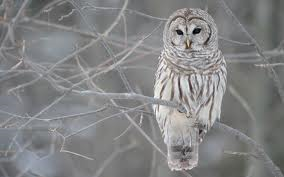 Jesus’ answer: What is born of the flesh is flesh, and what is born of the Spirit is spirit. Do not be astonished that I say to you, ‘You must be born from above. The wind blows where it chooses, and you hear the sound of it but you do not know where it comes from or where it goes. So it is with everyone who is born of the Spirit;
Jesus’ answer: What is born of the flesh is flesh, and what is born of the Spirit is spirit. Do not be astonished that I say to you, ‘You must be born from above. The wind blows where it chooses, and you hear the sound of it but you do not know where it comes from or where it goes. So it is with everyone who is born of the Spirit;
requires a leap into the unknown. Jesus’ answer is absurd. And true. For all we do know about the direction of the wind, we do not know what the winds of time and the Spirit will bring us, nor do we know what they will take away. All too soon, in 69 A.D., the Temple itself was reduced to rubble, and the Samaritans dissolved into the dust of history. Yet the words of the prophets, and this Samaritan gospel about Jesus, still survive.
Most of us, like Nicodemus, rely on what we are and what we know. Unlike him, most of us would not go to the mean streets of an alien people, at night, to try to understand God. But most of us do trust Jesus’ word, that the life of the wind is for everyone, and God means to save us all.
_______________________________________________________
Illustrations:
1. Possibly Nicodemus, by Fra Angelico, detail from Deposition of Christ (the often-painted detail is from the legend that Nicodemus helped take the body of Jesus to the grave). Vanderbilt Divinity School Library, Art in the Christian Tradition.
2. Scary, Scary Night. 2008 photograph. Vanderbilt Divinity School Library, Art in the Christian Tradition.
3. The Gale, by Antonio Perreiras, 1888, Pinocoteca, Sao Paolo, Brazil. Vanderbilt Divinity School Library, Art in the Christian Tradition.
4. Barred Owl. Wikipedia Image.



